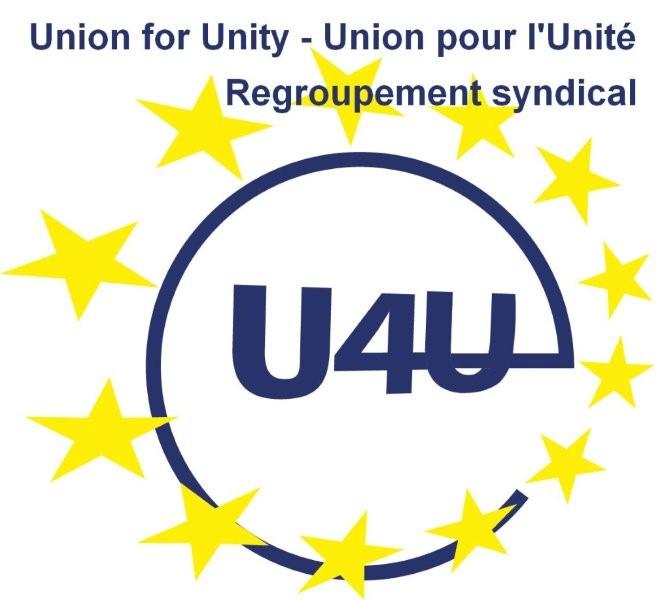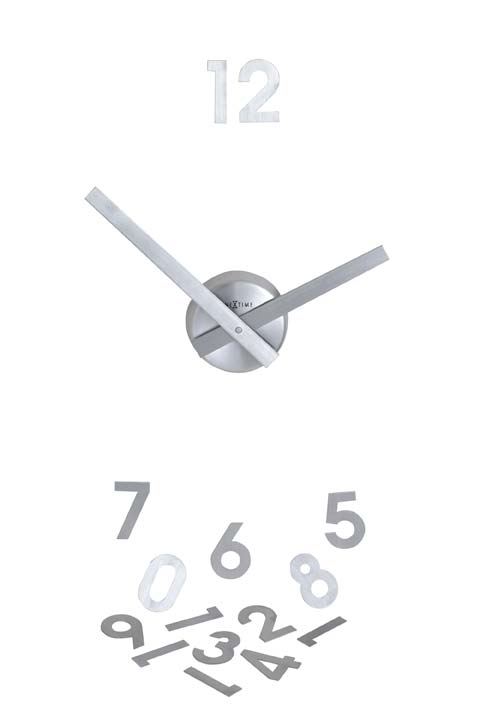
U4U Circular
![]() version française -
N°53 –
6 February 2016
- Editor: G. Vlandas, Editorial Team: P. Kéraudren, K. Slama, F. Andreone, J.-P. Soyer.
version française -
N°53 –
6 February 2016
- Editor: G. Vlandas, Editorial Team: P. Kéraudren, K. Slama, F. Andreone, J.-P. Soyer.
 |
U4U Circular |
|
|
|
 |
Citation of the day: What would Jean Monnet think today of the negotiations on the "Brexit"?"Experience has showed me that it is not good for the English to obtain separate conditions and a special status in their relations to others, neither can they benefit from it. However, you can expect much of them if you resolutely offer them to collaborate as equals. If your sturdiness is constant, the chances are high that they will adapt at some point or another and become partners in the full meaning of the word." Memoirs, pp.363-364
|
 |
Meeting between trade unions, staff committees and Vice-President K. GeorgievaVP K. Georgieva has, from the beginning of her mandate, proposed to meet trade unions on a regular basis (once per term), often in the company of staff committees representatives. If those meetings allow in part to better understand the intentions of the Vice-President, they do not however provide the opportunity to have a discussion, however limited. Even worse, those meetings tend to overstep on the meetings with the administration concerning social dialogue and may even nurture confusion as to the development of the dialogue with the institution. For example, previous habits planned for regular meetings between the Director-General of the HR DG and the Central Committee (Contact Committee, Coco). The same went with human resources directors and the Local Staff Committees (Local Contact Committee, Cocolo). Different questions relating to the staff committees' competences were tackled during those regular meetings. They would also offer a framework in in which substantive responses to staff concerns were provided. This is not possible anymore during the meetings with the VP. Our recommendation is to go back to those previous, more efficient, practices. During the reunion with the VP at the end of January, U4U had proposed the introduction of three questions on the meeting agenda, without having received the possibility of obtaining the requested information. U4U recommends limiting the discussions with the VP to the tackling of strategic questions for the institution and the staff, and to the identification of the main social dialogue topics for the on-going year. We would like to address other issues that are of interest for employees within the procedures provided by the framework agreement between the Commission and trade unions or staff committees.
|
 |
Staff management at the Commission: between pessimism and anger!For a few years now, the Commission has pledged to gradually reduce the number of employees to give the legislators guarantee that it can do the same, perhaps even more, with fewer resources. Linked to the 2014 reform concerning status, the purpose of which was to limit the rights and benefits of the European civil service, the main aim of this policy is to reduce the Commission's operating costs in section 5. This policy has had a tangible effect on each department, forcing them to call themselves into question and to constantly reorganise to cope with the staff shortage. This situation becomes even more difficult when the College's hurried decisions are added to it. These decisions go completely against any effort to organize staff and task management associated with staff already in place. See below for a first analysis of the situation and the dangers for the European civil service and the construction of the European Union.
|
 |
"Do more with the same? I dare you"U4U links its fight for our working conditions to the meaning of our work, the latter being directly linked to the development of the construction of Europe and to the upholding of the position and role of our institutions, especially the Commission. This approach is always reflected through our actions and publications, which are grouped together in the 4 volumes of our reference texts. The fifth volume is on the way. The aforementioned campaign is important. As we have written to the Commissioner, the budgetary restrictions we are fighting against should not prevent everyday improvements at work. Reorganisations, mobility for all employees, telecommuting, flexibility, careers, the fight against precariousness etc. are important topics that improve life at work whilst at the same time allowing us to defend demands that illustrate our conception of a mission that favours relations at work based on trust, flexibility, responsibility and innovation. It is therefore important to favour responses to this second discussion which also has the advantage to anchor our unionist and civic approach within the workforce. The Commissioner has declared herself ready to make unvarying budget matters progress. Please express your views regarding this topic. |
 |
Appraisal / Promotion: Let's go!The Commission and the SEAE have started, as they do every year, the appraisal process, which will end with the promotion of a few thousand of our co-workers before the end of the year. This allows for the payment of the promotions before the end of the year, with a readjustment from the 1st of January 2016. U4U has created a guide to inform colleagues. To obtain our help and advice, please follow the process highlighted in this document. |
 |
Decision on part-time: What about its implementation?VP K. Georgieva has spoken out much on Fit@Work during 2015. She has raised awareness to Human Resources in every DG on the importance of developing opportunities for employees and the high point of her campaign has quickly brought part-time into reconsideration. It should have been adapted to a modern management which would have conciliated work life and private life, whilst guaranteeing better efficacy for the institution. This decision has thus been adopted in December 2015. What is the state of the implementation of this decision, a few weeks after its approval ?
|
 |
U4U set up proximity services to defend the public service and the workforce!U4U has set up a certain number of instruments to help employees. We should firstly underline the existence of a network of trust-worthy individuals per DG, whose roll, amongst others, is to provide useful indications to colleagues, to help them speak to the right person within the U4U team and to guide them towards the organisation's legal department. If a contact is absent, you can also contact directly this Union. U4U organizes thematic meetings since its creation as well, often in workplaces (see next reunions' notice). In addition, U4U also goes around offices in every DG to discuss questions with colleagues that are of importance to them. Lastly, U4U holds a series of newsletters and websites, allowing colleagues to stay fully informed and form an opinion on questions that concern them, as well as on the development of the European Construction on which our public service ultimately depends. |